10 ISFP Characters from Movies, Television, and Literature
ISFP personalities, often referred to as the “virtuosos” or “artists”, are known for their sensitivity, creativity, and individualism. These qualities make them stand out in storytelling as characters that resonate with audiences on a profound, almost visceral, level. Today I want to explore with you 10 fictional characters that I think exemplify the ISFP type best on screen or in literature. Whether they’re steering through societal expectations, navigating personal crises, or championing their own version of heroism, these characters captivate us with their depth and authenticity.
Not sure what your personality type is? Take our in-depth personality questionnaire here. Or you can take the official MBTI® here.
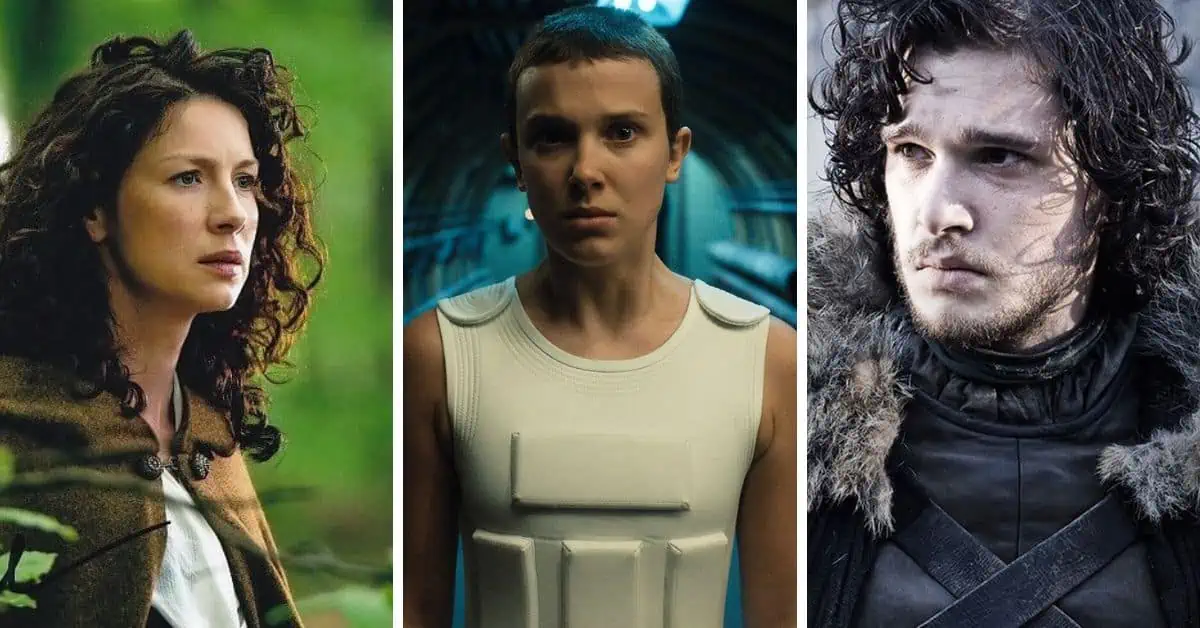
Estimated reading time: 8 minutes
10 ISFP Fictional Characters from Movies, Television, and Literature
1. Claire Fraser – “Outlander”
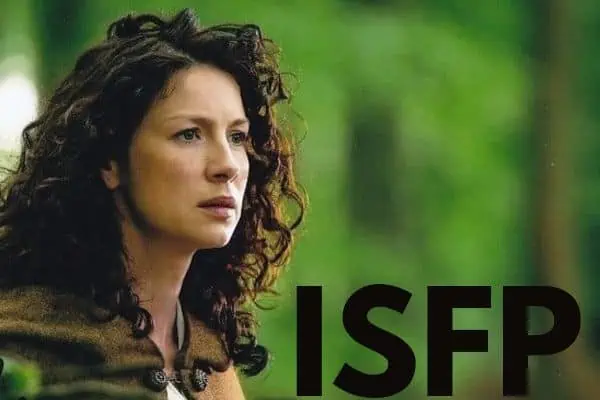
“The war taught me to cherish the present because tomorrow might never come to pass.” – Claire Fraser
Claire Fraser, portrayed by Caitriona Balfe in the historical drama “Outlander,” exemplifies the strength and practicality of ISFP characters. Claire is a combat nurse who finds herself propelled through time from the 1940s to the 18th century. Her ability to adapt quickly to crisis situations stems from her strong observational skills and realistic nature. As a healer, Claire melds her scientific knowledge with heartfelt care, embodying compassion with pragmatism and wit.
Claire’s narrative is driven by her values and her heart’s desires. Despite the turbulence of her situation, she remains true to herself. She shuns societal roles laid out for women of the time, instead embracing a path defined by her passions and a steadfast dedication to those she loves.
2. Rose Dewitt Bukater – “Titanic”
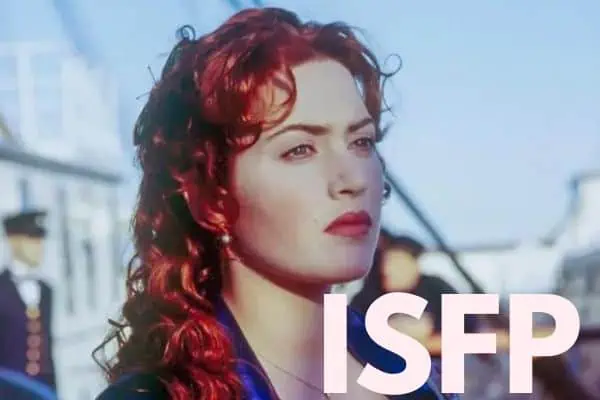
“It’s been 84 years, and I can still smell the fresh paint. The china had never been used. The sheets had never been slept in. Titanic was called the Ship of Dreams, and it was. It really was…” – Rose Dewitt Bukater
Rose Dewitt Bukater, brought to life by Kate Winslet in “Titanic,” is a compelling portrait of an ISFP facing societal constraints. Encumbered by the expectations of high society, Rose yearns for a life where she can freely express herself and march to the beat of her own drum. She exhibits an adventurous spirit and a romantic longing for authenticity.
We witness Rose’s internal struggle between her genuine self and the facade she must present to the world. The journey she undertakes is symbolic of the ISFP’s quest for self-discovery and self-actualization, culminating in the bold and affectionate person she becomes by the film’s end.
3. Eleven – “Stranger Things”
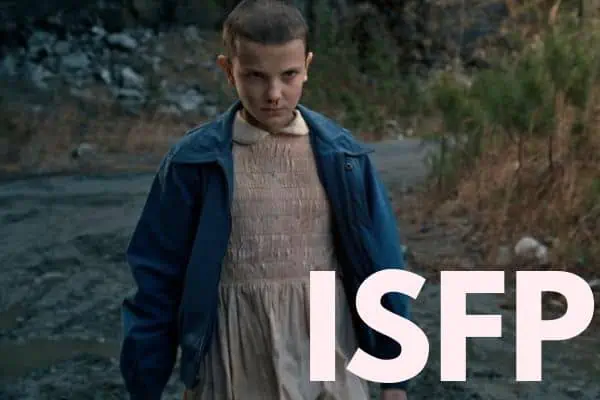
“Friends don’t lie.” – Eleven
Eleven, played by Millie Bobby Brown in the series “Stranger Things,” is an archetype of the quiet yet impactful ISFP. Though her dialogue may be sparse, her every action and utterance carry weight and meaning. Eleven is an authentic and gentle soul, yet she carries fierce capabilities that she mobilizes swiftly to protect those around her.
The physical and moral awareness Eleven possesses is common among ISFPs. She is constantly exploring themes of identity, belonging, and a nuanced understanding of right versus wrong. Quiet yet steely, Eleven is a great reminder of the mental toughness and conviction that ISFPs can bring to their actions.
4. Cinna – “The Hunger Games”
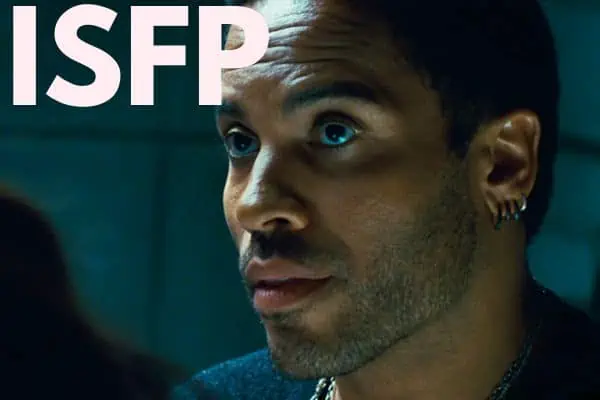
“I always channel my emotions into my work. That way, I don’t hurt anyone but myself.” – Cinna
Cinna, the quietly charismatic stylist from “The Hunger Games” portrayed by Lenny Kravitz, exemplifies the gentle power of the ISFP’s creative force. His aesthetic work not only looks stunning but carries a greater symbolic weight, showcasing his vision and his unspoken rebellion against the oppressive Capitol’s regime.
Cinna’s subtle strength and attention to meaningful detail reveal an ISFP characteristic blend of sensory perception and nuanced foresight. He embodies the ISFP’s capacity for gentle defiance through art and personal expression.
5. Jon Snow – “Game of Thrones”
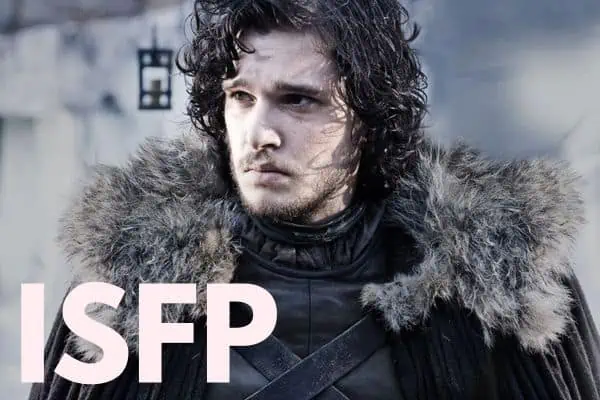
“I swore a vow to the night’s watch. If I don’t take my own words seriously, what sort of Lord of Winterfell would I be?” – Jon Snow
Jon Snow, one of the pivotal characters in “Game of Thrones,” embodied by Kit Harington, stands as a true depiction of the value-driven ISFP. Guided by an intrinsic sense of honor and justice, Jon’s actions revolve around a deeply felt moral compass, often at the cost of his safety or societal status.
In keeping with ISFP traits, Jon displays a heightened awareness of his environment, allowing him to react swiftly when danger looms. His story arc delves into themes of identity, loyalty, and leadership, all the while grounding his decisions in personal integrity rather than external validation.
6. Eowyn – “The Lord of the Rings”
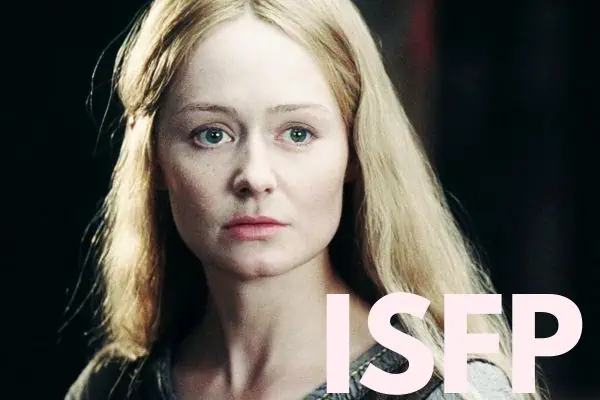
“What do you fear, lady?’ he asked.
‘A cage,’ she said.” – J.R.R. Tolkien, Lord of the Rings
Eowyn of Rohan, from J.R.R. Tolkien’s “The Lord of the Rings,” is a definitive ISFP, who is unflinching in her desire to break free from traditional roles. Eowyn’s candid nature and willingness to embrace adversity head-on embody the spirit of adventure and individuality that ISFPs are known for.
Her storyline is a testament to the ISFP’s fight against being confined by stereotypes. Eowyn desires not only to follow her heart but to forge her own destiny, revealing the powerful blend of earnestness and bravery that resonates with the ISFP persona.
7. Demelza Poldark – “Poldark”
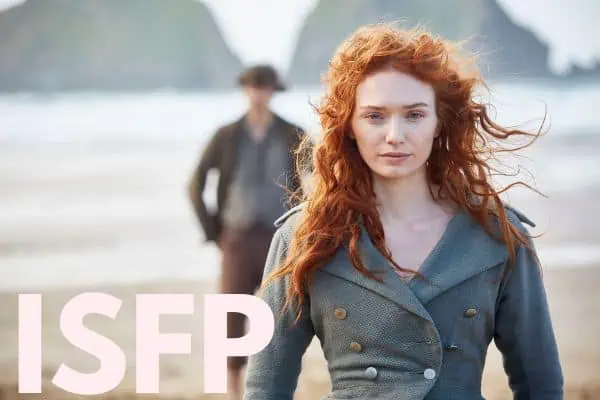
“It seem to me that having a husband is a bit like going to church. You either believe in something or you don’t. And if you don’t, then why go at all. But if you do, then you’ve no cause to keep asking for proof.” – Demelza
In the romantic-drama series “Poldark,” Demelza Poldark, portrayed by Eleanor Tomlinson, is the epitome of the intuitive and steadfast ISFP character. Despite her humble beginnings and the underestimation by her peers, Demelza has a sharp eye for the undercurrents of the society around her, along with a resilient determination to be herself.
Demelza’s character arc takes us through a journey of growth, loyalty, and resilience, which highlights the ISFP’s innate ability to read people and situations intuitively and respond with authentic emotion and understanding.
8. Stain (Chizome Akaguro) – “My Hero Academia”
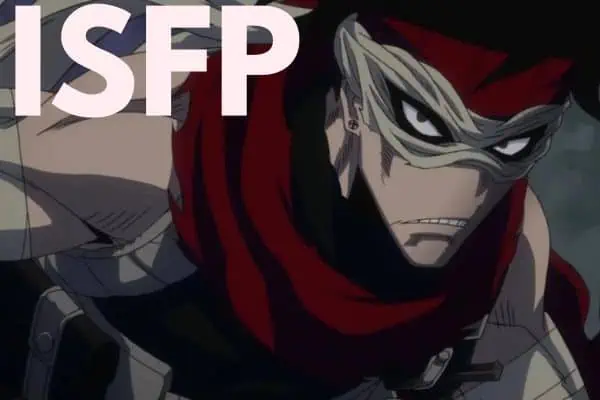
“No matter what you want to accomplish, it is necessary to have conviction and desire.” – Chizome Akaguro “Stain”
Stain, the complex villain of the anime series “My Hero Academia,” illustrates the darker shades of the ISFP archetype. While a villain in the traditional sense, Stain is driven by a strong conviction that heroes should be genuinely heroic and not motivated by fame or personal gain—reflecting an ISFP’s passion and loyalty to a deeply personal value system. ISFPs care far less about how someone appears than about what their true motivations are, and Stain exemplifies this perfectly.
His acute responsiveness and agility underscore the ISFP’s characteristic of being attuned to the physical world, while his unwavering adherence to his ideals—even when twisted into vengeance—speaks to the intense nature ISFPs can exhibit when following their sense of morality.
9. Haruka Nanase – “Free!”

“The water is alive. Once you dive in, it will immediately bare its fangs and attack. But, there’s nothing to fear. Don’t resist the water. Thrust your fingers into the surface and carve an opening. Then you slide your body through that opening. Moving your arms, your head, your chest…” – Haruka Nanase
Haruka Nanase, the main character in the anime “Free!,” mirrors the ISFP’s introverted warmth and depth of passion. While he often appears distant, there is no denying the fervent dedication he has to swimming—a sensory experience that serves as an emotional outlet and an arena for self-expression.
Haruka’s journey highlights an ISFP’s pursuit of freedom and the release of inner emotions through a deeply personal and immersive sensory activity like swimming. His evolution as a character serves as a reminder that beneath the calm exterior of many ISFPs lies a well of vibrant emotion and talent.
10. Marcus Brooks – “The Bear”
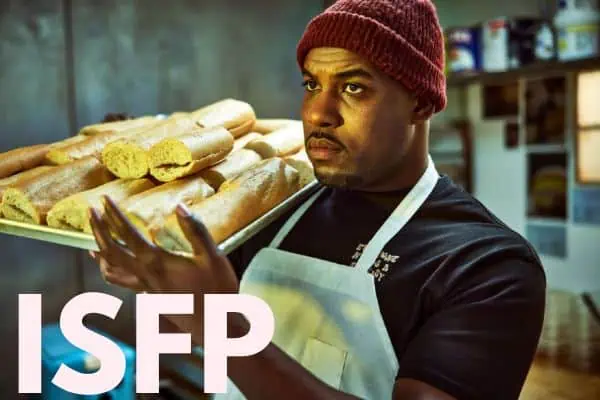
Marcus, portrayed by Lionel Boyce in the FX series “The Bear,” is a quintessential ISFP character living in the demanding world of culinary arts. His behind-the-scenes brilliance as a chef in the chaotic environment of The Original Beef of Chicagoland is a testament to the ISFP’s appreciation for craftsmanship and creativity. Marcus brings a calm demeanor to the high-energy kitchen, often serving as a grounding presence amidst the frenzy.
His thoughtful and innovative approach to cooking, coupled with a strong but quiet loyalty to his colleagues, perfectly encapsulates the ISFP’s values of authenticity, aesthetic expression, and harmonious relationships. Marcus’s journey in “The Bear” reflects the individualist nature of the ISFP, showing how they thrive on passion-driven projects and how they can kindle a warm, nurturing environment even within a pressure cooker scenario.
What Do You Think?
Do you enjoy these characters? Are there any other characters you’ve read about or seen in TV or movies that you’d like to mention? Let us and other readers know in the comments!
Find out more about your personality type in our eBooks, Discovering You: Unlocking the Power of Personality Type, The INFJ – Understanding the Mystic, The INTJ – Understanding the Strategist, and The INFP – Understanding the Dreamer. You can also connect with me via Facebook, Instagram, or Twitter!







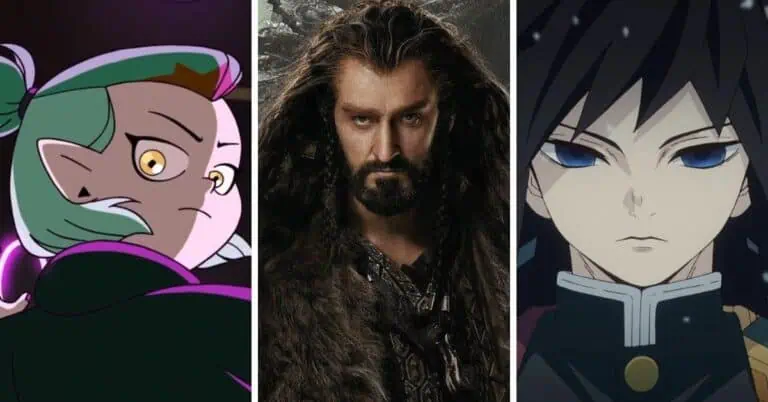
I believe Laura Ingalls Wilder (author of the “Little House” books) was an ISFP. 🙂
Oh, I could see that!! Thanks for bringing this up, I’d love to research her more
I enjoy reading about the 16 personalities and connect them to TV characters to have more insight.
BUT on the 16 personality web sites “John snow” is clearly identified as an INFJ!
I hope more research were done before publishing this article
Hi anonymous! As an MBTI® practitioner I make my personality assessments based on my understanding of type and the characters I’m typing, I don’t just copy and paste what other people post on sites like 16 personalities. From my perspective, Jon Snow is far way too grounded and in tune with his environment and the sensory world around him to be an INFJ. INFJs would be more like Bran or Lady Melisandre, people who are more focused on abstract visionary ideas for the future and insights. Jon is someone who is tactically proficient, constantly aware of his surroundings, what’s happening around him, how to react. He’s also very driven by his own personal values and self-referencing, needing to define his own ideas of right and wrong and stay true to his own values rather than influencing the values of the group or having that more connective Extraverted Feeling that INFJs have. His perspectives seem far more aligned with ISFP in this regard than INFJ. Again, there’s disagreement among type professionals about this. But most profilers I know type him as ISFP over INFJ, and I’ve found 16 personalities to be fairly inaccurate when it comes to its questionnaire profiling people correctly.
Also his name is spelled “Jon Snow”
Superman also comes to mind as a very famous fictional ISFP. All of that power and potential and brains, but he’s guided primarily by his feelings and bonds to both individual people and society. Very tolerant of everything and everyone except injustice.
Extraverted Sensing isn’t just a matter of his super-senses, but it also compels him to act, giving him boundless optimism and energy no matter how hopeless or tedious things seem. Standing by and letting injustice happen is just not an option, even the small things like a mugger or someone contemplating suicide.
Introverted Intuition comes from him seeing long-term potential and capability of reform in everyone, from members of the Justice League to wayward Kryptonians to humanity as a whole.
And finally, inferior Extraverted Thinking. This is the function that certain less mature versions of Superman struggle with (like the Injustice version, or Kingdom Come) and is always in the back of his head, tempting him to misuse his power in extreme situations.